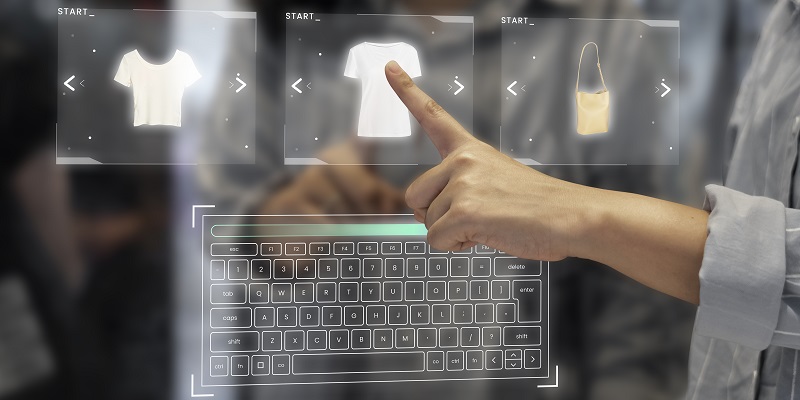The retail industry has witnessed a profound digital transformation in an ever-evolving world driven by technology. The rise of e-commerce has revolutionized the retail landscape, offering consumers the convenience of shopping from the comfort of their homes. In this article, we will explore the various aspects of this digital transformation, including the gathering of customer data, the importance of a seamless shopping experience, the rise of mobile commerce, the impact of AR and VR technologies, the acceleration of contactless payments during the pandemic, the enhancement of supply chain efficiency through advanced technologies, and the use of AI-powered chatbots for customer support. By embracing digital innovation, retailers can elevate the shopping experience, strengthen customer loyalty, and secure a competitive edge in an increasingly digital marketplace.
Gathering Customer Data
In the age of digital transformation, retailers have been empowered to gather vast amounts of customer data. This data serves as a valuable resource for retailers to better understand consumer preferences, behavior, and buying patterns. By analyzing this data, retailers can personalize their offerings, provide targeted marketing campaigns, and improve overall customer satisfaction.
Seamless Shopping Experience
Today, consumers expect a seamless experience when they engage with retailers through various channels. Whether it’s in-store, online, or through mobile devices, consumers want a consistent and hassle-free experience. E-commerce has been a key driver in meeting these expectations, allowing shoppers to effortlessly navigate through product catalogs, compare prices, and make purchases with ease.
Rise of Mobile Commerce
The widespread adoption of smartphones has led to the rise of mobile commerce. With mobile devices becoming an integral part of our daily lives, consumers can shop anytime, anywhere. Mobile commerce offers retailers unique opportunities to reach and engage with customers through mobile apps, mobile-optimized websites, and targeted mobile advertisements.
Transformation through AR and VR
Augmented Reality (AR) and Virtual Reality (VR) technologies have revolutionized how consumers interact with products and make purchase decisions. AR allows shoppers to visualize products in their real environment, giving them a better understanding of size, fit, and functionality. VR, on the other hand, offers immersive experiences that allow customers to virtually try products before making a purchase. These technologies enhance engagement and create memorable shopping experiences.
Contactless Payments in the Pandemic
The COVID-19 pandemic accelerated the adoption of contactless payments in the retail sector. Concerns regarding physical contact and the need for social distancing prompted retailers to offer contactless payment solutions, such as mobile wallets and tap-and-go options. This shift has not only increased convenience for customers but has also furthered the digital transformation in the retail industry.
Enhancing Supply Chain Efficiency
Advanced technologies like Internet of Things (IoT) sensors and blockchain have significantly improved supply chain visibility, inventory management, and product tracking. IoT sensors provide real-time data on inventory levels, enabling retailers to optimize their stocking and replenishment processes. Blockchain technology offers transparency and security by tracking and verifying the movement of goods throughout the supply chain.
AI-Powered Chatbots for Customer Support
To enhance customer support services, retailers are increasingly adopting AI-powered chatbots. These chatbots simulate human conversations and offer personalized assistance to customers, including product recommendations, order tracking, and general inquiries. AI-powered chatbots provide round-the-clock support, reduce response time, and improve overall customer satisfaction.
The digital transformation of the retail industry has brought about significant changes, empowering retailers to offer seamless shopping experiences across various channels. The adoption of e-commerce, mobile commerce, AR, VR, contactless payments, IoT sensors, blockchain, and AI-powered chatbots has revolutionized the way retailers connect with customers. By embracing digital innovation, retailers can provide a personalized and convenient shopping experience, strengthen customer loyalty, and secure a competitive edge in an increasingly digital marketplace. As technology continues to evolve, retailers must continuously adapt to meet changing consumer expectations and stay ahead in the digital transformation journey.

